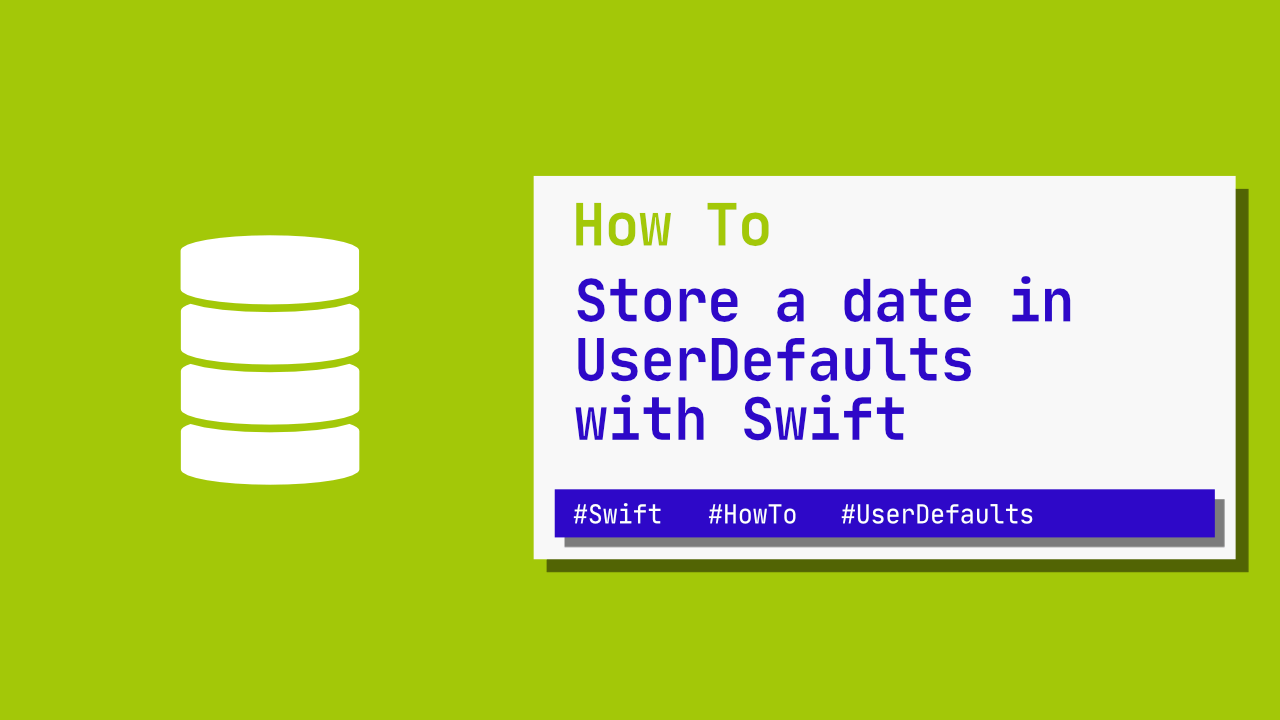How to store a date in UserDefaults with Swift

UserDefaults can be a useful tool to store small amounts of information. In this tutorial I will show you how you can store a Date in UserDefaults using Swift.
Storing a date in UserDefaults
Below is the code that we will use to save the date:
let defaults = UserDefaults.standard
defaults.set(Date(), forKey: "currentDate")
if let storedDate = defaults.object(forKey: "currentDate") as? Date {
print("Stored Date: ", storedDate)
}Storing a date is the same as storing another type. UserDefaults has a few methods for setting a value to a key, one of them allows the value to be of type Any?. This is what will be used in the above example by default.
In the first line I have created a constant so that I don't have to type UserDefaults.standard all the time.
Next we will add a value to UserDefaults. To do this we call the .set(value:, forKey:) method. The value in this case will be a new instance of Date and the key will be currentDate.
Lastly we can retrieve the value from UserDefaults. Because UserDefaults does not support Date in the same way it does other types, we need to cast the returned value to a Date. Once we have the returned value we print it out.
If you want the full source code, you can find it here.
